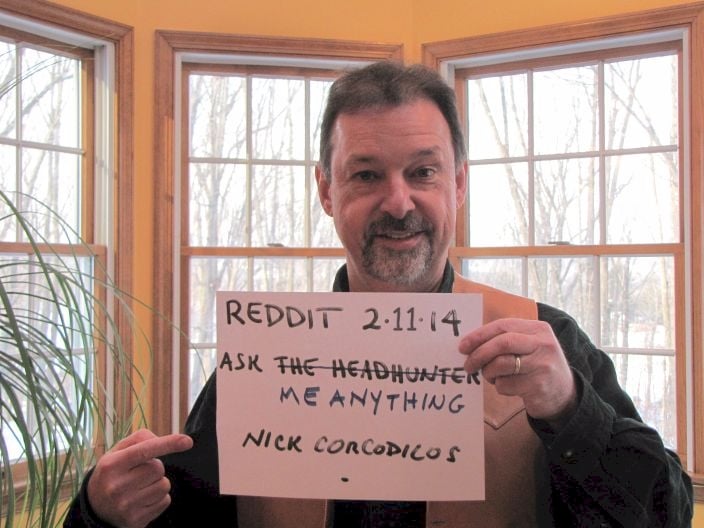Question
My question is about my recent inability to keep a job. I have over 20 years’ experience in corporate management. I was with a great company for 9 years but lost my job when the company was sold. To this day, I have glowing references from the owners and other managers. Since I was laid off a few years ago, I have been fired from 6 different jobs and I can’t understand why. They never give me reasons and when I ask, they make excuses.
I was also diagnosed with PTSD and have been in treatment for that, but I know my job inside and out and perform well. The one thing I have noticed is that I feel fearful when I’m being confronted in an unfriendly or angry manner. I seem to have the fight, flight, or freeze response and my brain shuts down — I freeze. I don’t always have the words I need, so I often request a follow-up meeting so I have time to gather my thoughts.
I really need some help with this situation, as well as how to craft my resume. I can’t put 6 different jobs for the past 5 years. I am a dedicated, loyal employee. I always make sure deadlines are met and, with all my experience, I run my department like a well-oiled machine and deliver results in a timely way. I hope this is something you can help me with. Thank you kindly for any help you may be able to provide.
Nick’s Reply
Am I going out on a limb if I guess that you didn’t always have these problems during your long, otherwise successful career? Perhaps you just never needed to learn how to defend yourself effectively. But business has changed – and not always for the better. Now you need new tools for dealing with complex emotions.
Job search obstacles, or emotional challenges?
Lots of people are running kind of scared – probably including some of the employers who fired you. Many managers resort to aggressiveness and to blaming others. Couple this with a new employment system that features non-stop advertising telling employers they have instant access to thousands of resumes and job applicants – so employers see no need to treat employees with respect. Just fire them and get another one! It’s a bad situation all around.
I specialize in helping people overcome obstacles in the job search. And even though I have an advanced degree in Psychology, it’s not in clinical – it’s in cognition. I don’t pretend I’m qualified to help people who have problems like yours.
Fight, flight or freeze – that’s a set of emotional issues, and many people face them. It seems clear to me you’re good at your work and good at working with others when they behave properly. Dealing with jerks is another story altogether!
Fired and ready for CBT?
Although an honest self-assessment can be healthy, I think your challenge is learning how to cope with difficult people and situations. Behaving professionally is a lost skill because, well, workers are fungible. Bad behavior is now the norm. Just look at our politics.
We all face difficult bosses at some time or other. It seems some of your recent bosses have triggered your stress response.
Have you talked with your PTSD therapist about this? I’m a fan of cognitive behavioral therapies (CBT) for dealing with many problems at work. Learning to change and control our behaviors can lead to wonderful changes in how we see the world and ourselves. Please consider and perhaps explore CBT. Interview some good practitioners and see if it’s a good fit for you.
Fired: Time to get personal
The only advice I’d offer you is, don’t rely on job postings and impersonal job applications. Please read some of my recent Q&A columns. I think the best way for you to find your next job is by cultivating and using good personal contacts – people who can explain to a hiring manager your strengths and abilities, and also put the manager’s mind at rest about your recent frequent moves. Opportunities where this doesn’t work are probably not for you. You need a good employer who will let you do your job, not abuse you. Good employers respond well to referrals from trusted personal contacts. It’s up to you to cultivate such contacts and use them to get in the door.
As for how to handle being fired, please check these two articles and the excellent comments posted by readers.
How much should I say about getting fired?
Can they find out I was fired from my last job?
Keep an untroubled spirit and get help
I’d be glad to schedule an hour of Talk to Nick for you – we’d probably come up with some things you could do to make a material difference in your job search. But I think it’s more important for you to get help with how to deal with jerks. A good CBT therapist could help you cope better. I’ll recommend an oldie-but-goody book by Richard Farson: Management of The Absurd. It’s a quick, illuminating read.
I hope something I’ve said is helpful. Please check the comments and suggestions from other readers that will likely appear below this column. I’m betting lots of other readers have faced challenges like yours.
I’ll leave you with a favorite quote from Marcus Aurelius: “The first rule is to keep an untroubled spirit. The second is to look things in the face and know them for what they are.“
It seems you face your problems and know what they are. But as you tackle them, learn to apply the first rule more often. I know the business world makes that difficult. Getting some good help to learn how to deal with the stress is essential. I wish you the best!
: :
Have you faced emotional crises at work? Have you been abused to the point where you’ve lost your confidence? There’s big abuse, there’s small abuse, but it all makes for a difficult work life. Sometimes we all need help. What kind of help has worked for you? What advice would you offer this reader?



 When a company wants to interview me, I apply your advice and try to exert some control by asking that the hiring manager be present at my first interview. I think it’s inappropriate for an employer to ask me to invest hours of my time without that manager present. It worked recently with a small advertising company, and it actually helped the two-way respect, and I felt more confident talking about the role and compensation.
When a company wants to interview me, I apply your advice and try to exert some control by asking that the hiring manager be present at my first interview. I think it’s inappropriate for an employer to ask me to invest hours of my time without that manager present. It worked recently with a small advertising company, and it actually helped the two-way respect, and I felt more confident talking about the role and compensation. Like my old mentor used to say, Use your judgment every step of the way, and do the best you can. And in the end, make choices — don’t let the other guy make them for you.
Like my old mentor used to say, Use your judgment every step of the way, and do the best you can. And in the end, make choices — don’t let the other guy make them for you.



